On the day that Iran, the U.S. and five other world powers announced a historic agreement on its nuclear program, National Security Advisor Susan Rice joins Gwen Ifill to discuss the rules that ensure governing sanctions relief and whether President Obama is serious about using his veto power should Congress reject the deal.
Web Video: Iran deal is ‘most comprehensive and effective’ nuclear plan ever, says Ambassador Rice
Jul. 15, 2015 AT 11:12 a.m. EDT
TRANSCRIPT
Notice: Transcripts are machine and human generated and lightly edited for accuracy. They may contain errors.
GWEN IFILL: We return to the news that dominated today, the nuclear deal with Iran.
A short while ago, I spoke with Susan Rice, the president’s national security adviser.
Ambassador Rice, thank you for joining us.
One of our leading allies, Benjamin Netanyahu, prime minister of Israel, today called this deal an historic mistake. Why is he wrong?
SUSAN RICE, National Security Advisor: Well, he’s wrong, Gwen, because this is actually a very strong deal that, when implemented, will cut off all of Iran’s potential pathways to a nuclear weapon in a fully verifiable fashion.
We will have very intrusive 24/7 presence at all elements of Iran’s nuclear supply chain and all of its declared facilities. We will have the ability to inspect facilities about which there are suspicions. We will reduce Iran’s stockpile of enriched uranium by 98 percent.
Two-thirds of its centrifuges will be dismantled and removed and stored under international observation. This will be the most comprehensive and effective nuclear transparency regime ever implemented.
So, in fact, that is not the case. And I think it’s worth recalling that Prime Minister Netanyahu was equally critical of the interim agreement that we announced in November of 2013. He called that also a historic mistake and he said the sanctions regime would crumble down.
Now he and many others are arguing that we shouldn’t take the comprehensive deal that we just negotiated. We should stick with the interim agreement that he criticized almost two years ago. So, I think, as time passes, if this is effectively implemented — and we believe it will be — then he will in due course see its benefits, as we do.
But the important thing to understand, Gwen, is that Iran will not receive any sanctions relief under this comprehensive deal until it has taken all the necessary steps to meet its nuclear requirements. So, until it has dismantled the centrifuges that it is required to dismantle at Natanz and Fordow, until it’s shipped out its stockpile of enriched uranium, until it’s dismantled the core of its plutonium reactor, there will be no sanctions relief.
And so then we don’t lose anything for going down this diplomatic path.
GWEN IFILL: But, Ambassador Rice, if, for some reason, Iran doesn’t keep its promises, if it doesn’t grant access to these suspicious sites, it goes — this whole thing goes back to a joint commission on which Iran serves as a member. Isn’t that a huge loophole?
SUSAN RICE: No. Let me explain how this works.
First of all, the joint commission is not the last word. The last word is the United Nations Security Council. And we have constructed this deal in a unique and very effective fashion where, if one permanent member of the Security Council, if the United States of America finds that Iran is in material breach of its obligations under this agreement, we can go directly to the Security Council, and White House a — White House a time-bound period, snap back unilaterally all of the sanctions under the U.N. auspices that we have today.
And, of course, we can snap back our national sanctions, and the E.U. can do the same. So, we can’t be stopped by China, by Russia, by Iran if in fact there is a material breech.
GWEN IFILL: Well, let’s talk about the sanctions. Even by lifting them for a short period of time, you are starting the flow of money to Iran which could go to support some of our enemies, including people who are trying to take out Syrian President Assad. How do you justify that?
SUSAN RICE: Well, let’s recall why we have the sanctions in the first place.
I was the ambassador at the United Nations when we implemented and negotiated the toughest and last of these sanctions resolutions. The whole purpose of the sanctions regime and the reason why we got the entire international community, not just to support them, but to implement them faithfully, was because the aim was to use the sanctions pressure to bring Iran to the negotiating table, so that we could prevent Iran from acquiring a nuclear weapon.
This was never about human rights. It wasn’t about terrorism. It wasn’t about Iran’s destabilizing activities in the region, all of which we remain deeply concerned about. But it was about preventing Iran from getting a nuclear weapon at the negotiating table.
We have succeeded, if this deal is implemented, in doing that. And the deal always was that, if and when Iran met its nuclear obligations and the world could be satisfied that it wasn’t able to develop a nuclear weapon, then the sanctions would be lifted.
And so the sanctions under this scheme would be lifted, but only after Iran’s taken all the steps and we have verified that it’s taken all the steps that it’s committed to take. And then, even after the sanctions are suspended, we will have the ability if over — at any point over a 15-year period Iran violates its obligations, to snap these sanctions back into place swiftly and effectively, without Iran or Russia or China getting in our way.
GWEN IFILL: Was there any discussion at any point about releasing U.S. hostages as part of this deal?
SUSAN RICE: Not as part of this deal, but we have been in discussions with the Iranians about the Americans that are being imprisoned in Iran. This is a source of very, very grave concern for all of us, and in particular President Obama.
Those talks continue. And we’re not going to rest until they are released. But we never wanted to link them to the nuclear deal, because, obviously, up until the last minute, there was every possibility that there wouldn’t be a nuclear deal.
So we’re committed to getting our Americans home safely in any event, and we will continue to work to do everything we can.
GWEN IFILL: And, finally, Ambassador Rice, is the president’s veto threat open to discussion or negotiation?
SUSAN RICE: It didn’t sound like it, did it?
GWEN IFILL: OK.
SUSAN RICE: No, Gwen, seriously, and — no, because we have negotiated a deal that is good for the United States, it’s good for Israel, it’s good for world peace and security.
And if the United States were the country, the sole country out of the international community to blow up a deal that we have negotiated that we believe satisfies all of our requirements, then what will happen? Well, in the first instance, the sanctions regime that we have worked so hard to maintain will fall apart, because the rest of the world will say, what is the point?
Countries like Japan and India that have paid an economic price to implement these sanctions would no longer feel the obligation to do so. Iran would say, look, we signed up for the deal, we’re ready to do our part, but now, since there’s no prospect of sanctions relief, we’re going to pursue our nuclear program unconstrained.
That would be a lose-lose situation. So it would be very unfortunate if the United States were the one to abrogate and therefore blow up a very good deal. And so, when the president said he would veto efforts to undermine this deal, he meant it.
GWEN IFILL: National Security Adviser Susan Rice, thank you for joining us.
SUSAN RICE: Thank you for having me, Gwen.
MOST POPULAR

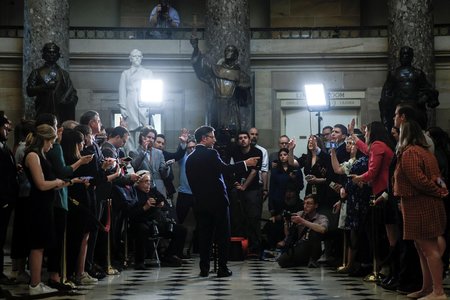
Full Episode: Washington Week with The Atlantic full episode, 4/19/24

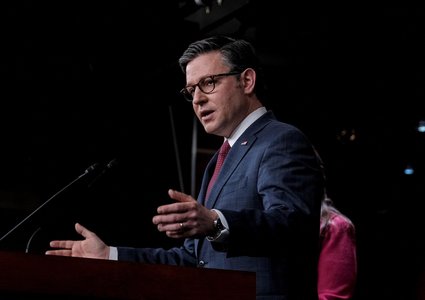
Clip: Will Democrats rescue Johnson's speakership to protect aid for Ukraine and Israel?

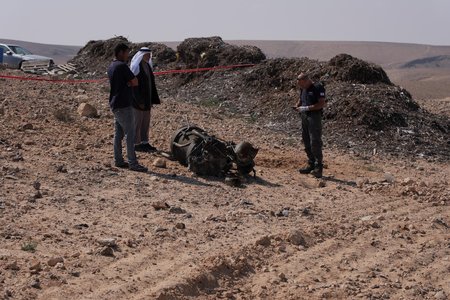
Clip: Attacks in Israel and Iran bring more uncertainty to Middle East
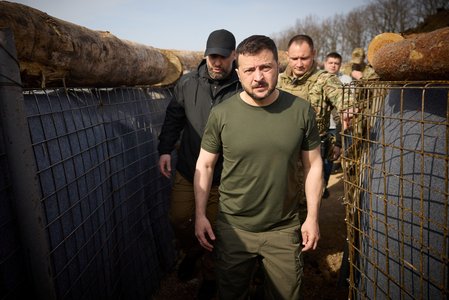
Preview: Coming Up on Washington Week with The Atlantic

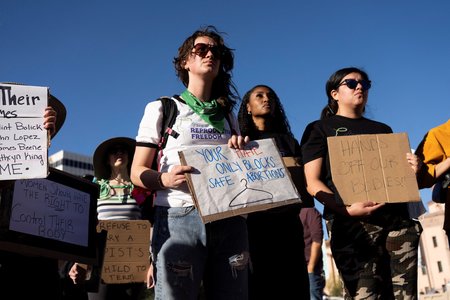
Full Episode: Washington Week with The Atlantic full episode, 4/12/24

© 1996 - 2024 WETA. All Rights Reserved.
PBS is a 501(c)(3) not-for-profit organization

